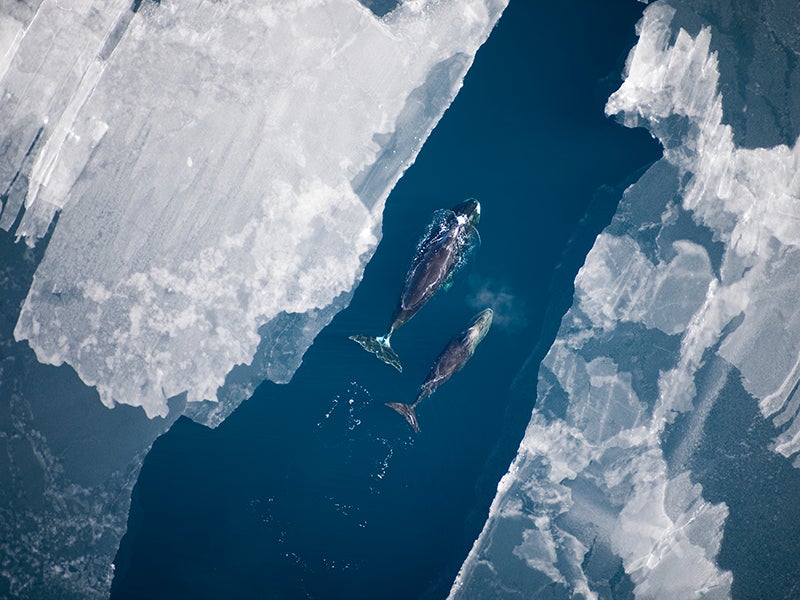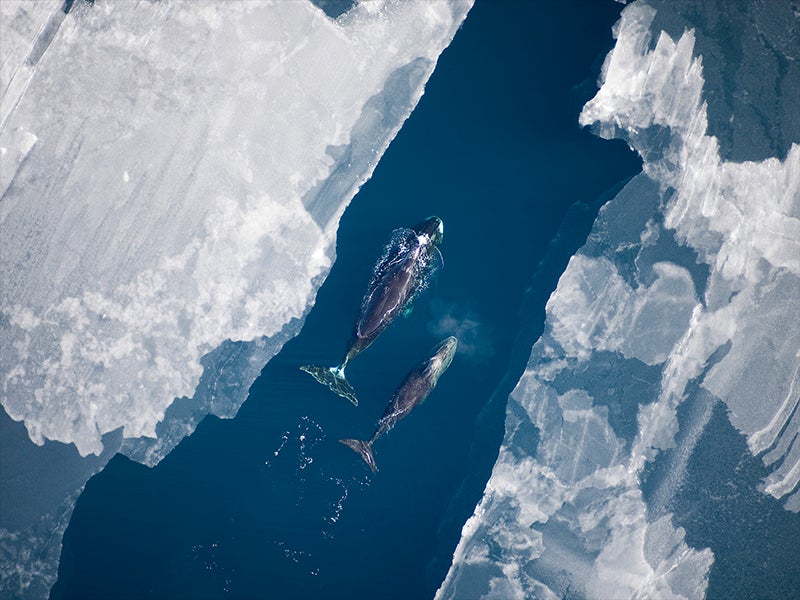Challenging Trump’s Reversal of Arctic and Atlantic Drilling Ban
Offshore drilling in the Arctic would be catastrophic for our climate. The decision could open up more than 120 million acres of ocean territory to the oil and gas industry, affecting 98% of federal Arctic Ocean waters and 31 biologically rich deepwater canyons in the Atlantic Ocean. The executive order exceeds Trump’s constitutional and statutory authority and violates federal law.
Clients
Attorneys
Regional Office / Program
Case Overview
President Trump’s April 28, 2017, executive order to jettison a permanent ban on new offshore oil and gas drilling in the Arctic and Atlantic oceans exceeded his constitutional and statutory authority and violated federal law.
Responding to a national groundswell of opposition to expanded offshore drilling, President Obama permanently ended oil and gas leasing in most of the Arctic Ocean and key parts of the Atlantic Ocean in December, 2016, using his authority under the Outer Continental Shelf Lands Act (OCSLA). Until Trump, no president has ever tried to reverse a permanent withdrawal made under OCSLA, which does not authorize such a reversal.
Trump’s executive order could open up more than 120 million acres of ocean territory to the oil and gas industry, affecting 98 percent of federal Arctic Ocean waters and 31 biologically rich deepwater canyons in the Atlantic Ocean. Drilling in remote and inaccessible Arctic waters threatens injury to imperiled wildlife such as polar bears, whales and walruses and people that depend on them. Drilling there is particularly dangerous and risky because it would be effectively impossible to clean up an oil spill in icy, remote Arctic waters. The federal government itself has concluded that there was a 75 percent chance of a major oil spill if development and production in the Chukchi Sea moved forward under even a single large lease sale.
In the Atlantic, drilling in the protected areas would threaten unique and critical habitat for a multitude of whale species, as well as swordfish and sea turtles. In addition, Atlantic drilling threatens the region’s vibrant fishing and tourism industry—a spill equivalent to the BP Gulf oil disaster could coat beaches stretching from Savannah to Boston.
These major risks are particularly egregious and pointless in a world assaulted by climate change, given the extremely long lead times needed before these undeveloped offshore areas could be brought into production. Full development and burning of oil and gas from the Arctic Ocean alone could release nearly 16 billion tons of carbon dioxide into the atmosphere, the equivalent of over nine years of tailpipe emissions from every car and truck on the road nationwide. Pursuing this development stands at cross-purposes with the nation’s necessary and rapidly accelerating move away from fossil fuels, and with previous commitments to address global climate change.
A coalition of conservation and Alaska Native groups are represented by attorneys at Earthjustice and Natural Resources Defense Council. The lawsuit was filed in federal district court in Alaska.

Case Updates
Case page created on May 3, 2017.

